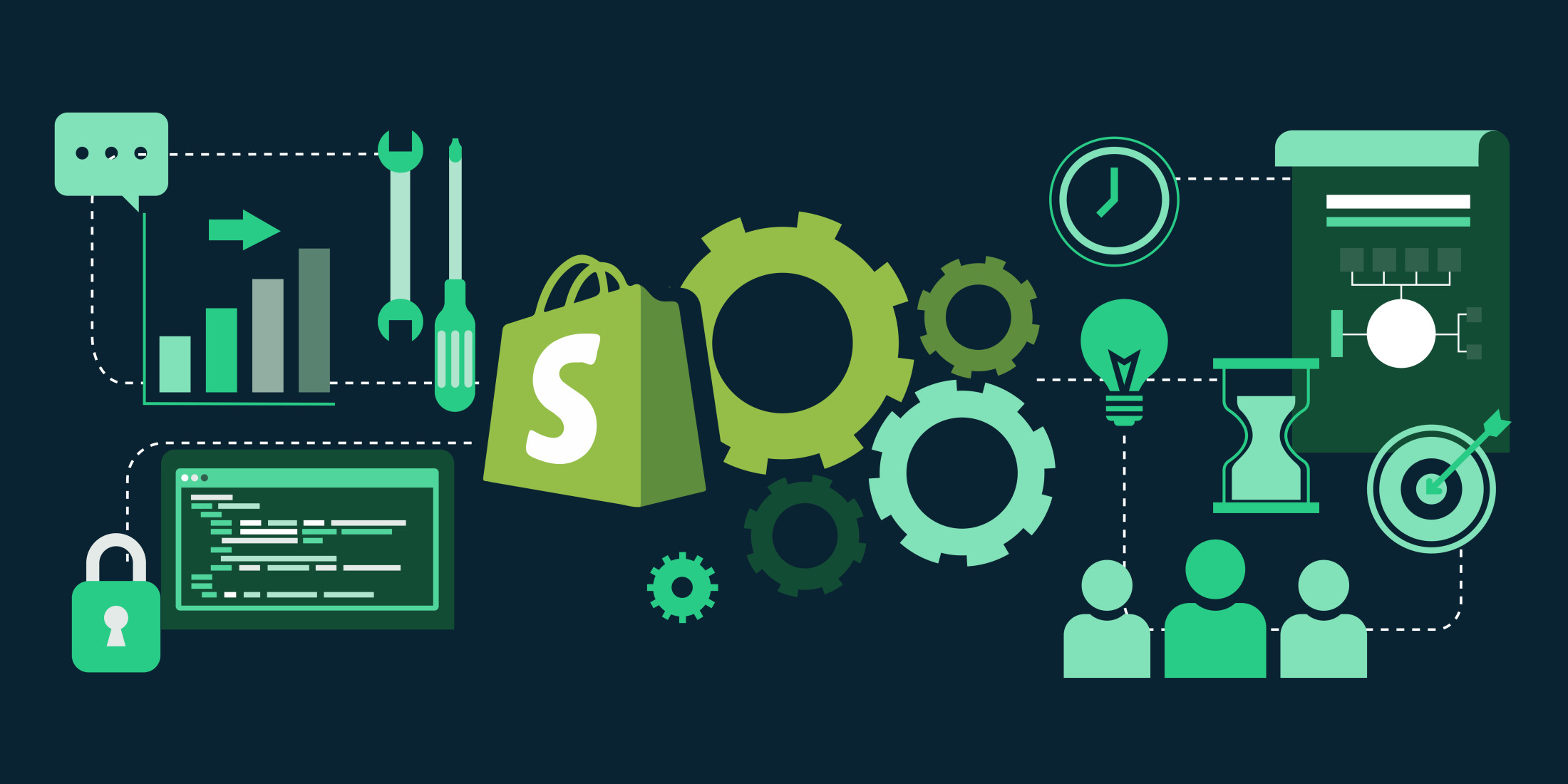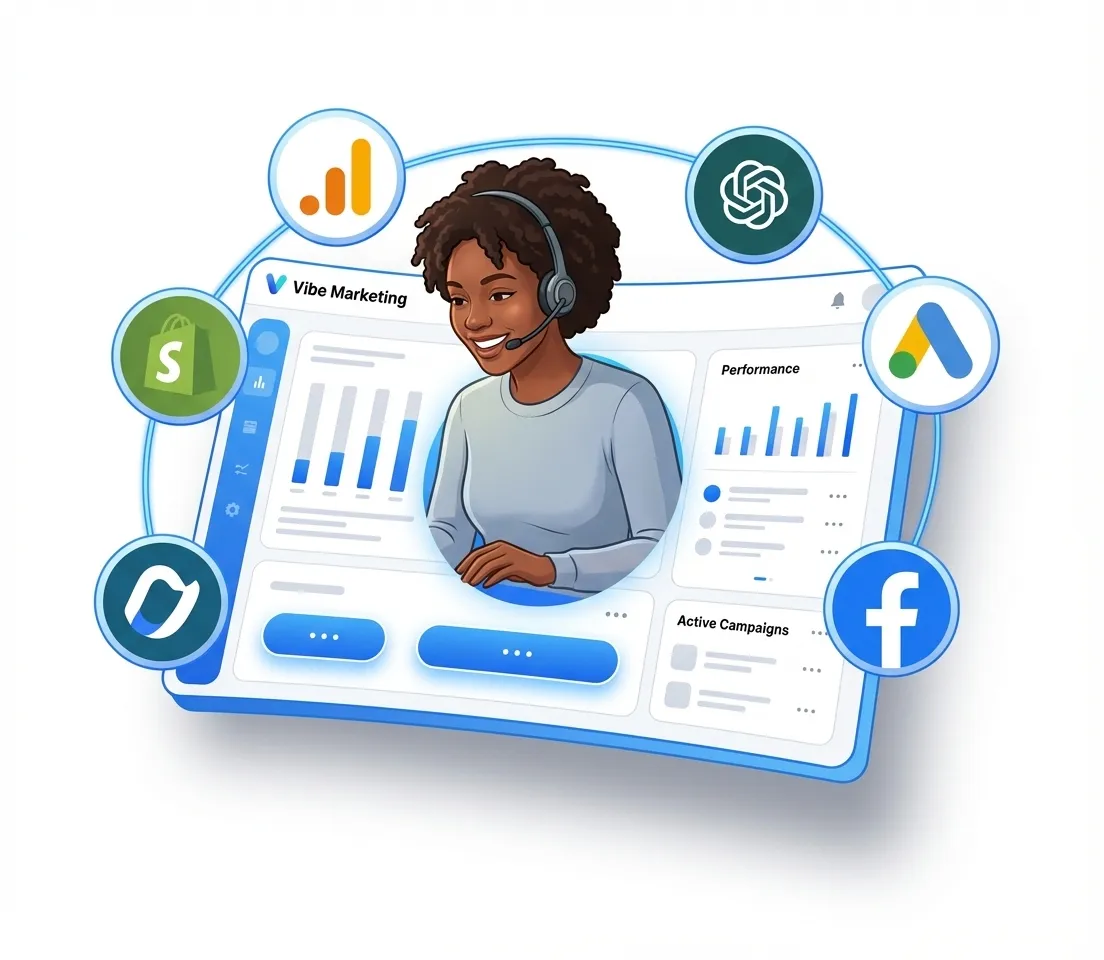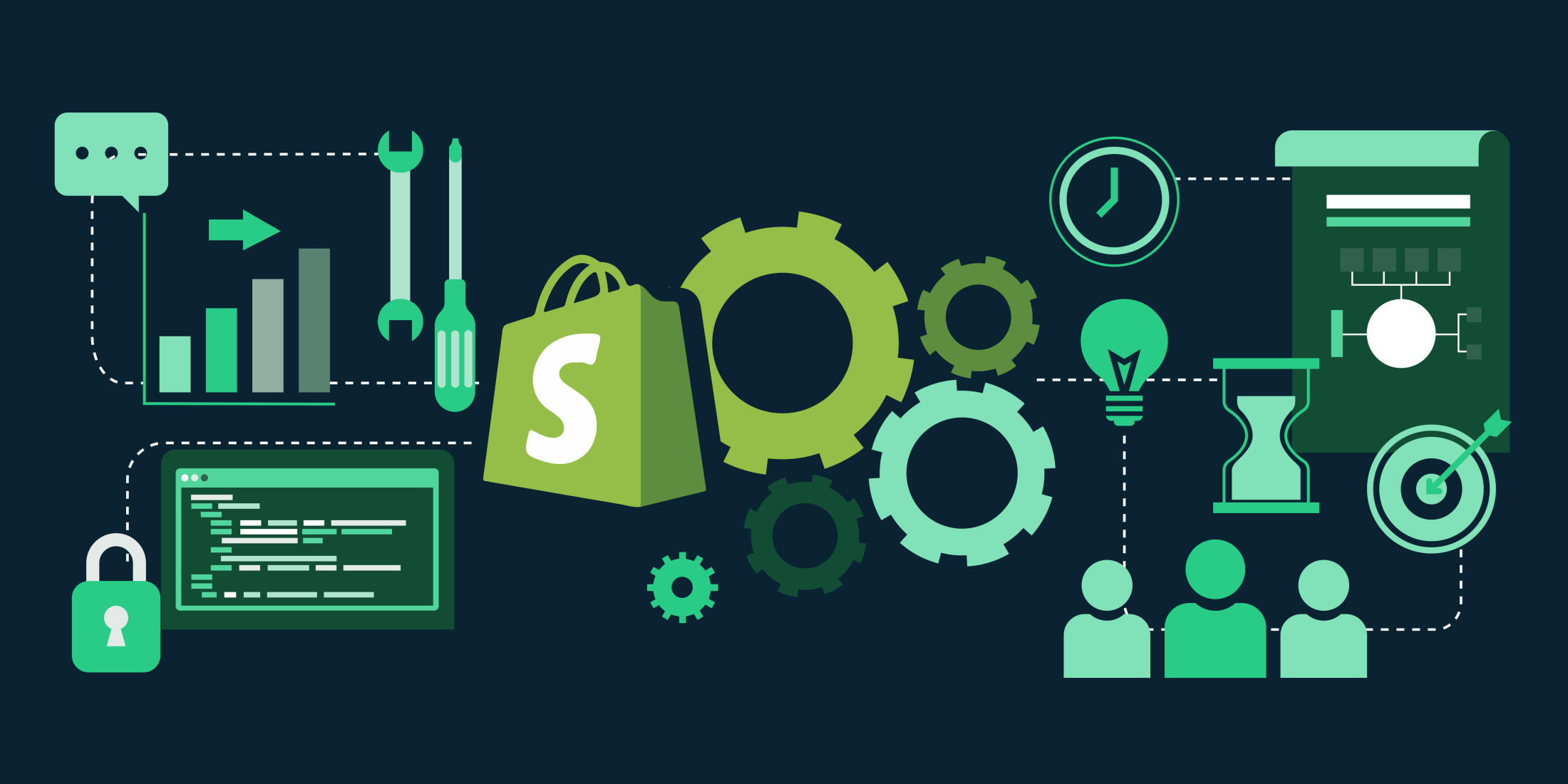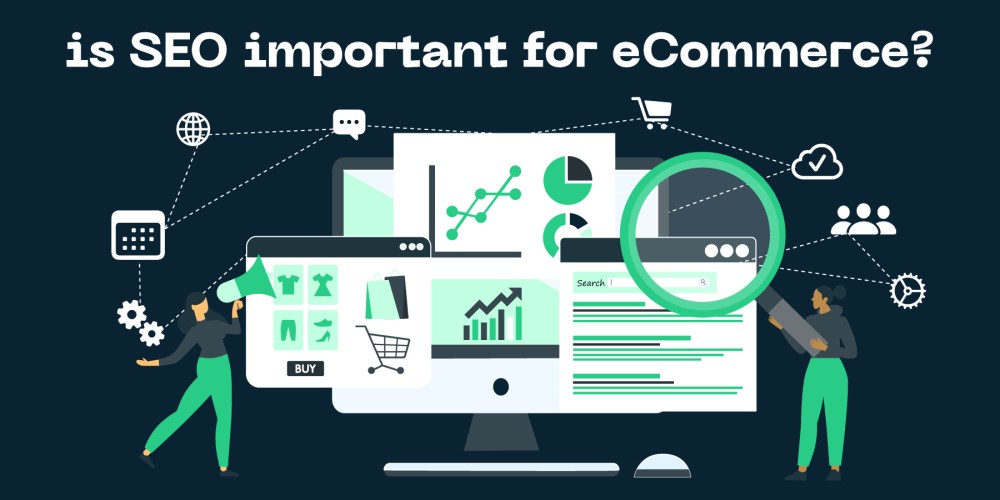How AI Can Help You Organize Internal Links on Your Store

Key Takeaways
- Discover how ConvertMate can help you organize internal links on your store using AI, enhancing your eCommerce strategy.
- Learn about the benefits of AI in improving user experience and boosting SEO through effective internal link optimization.
- Understand the importance of internal linking and how AI tools can automate and enhance your linking strategies.
- Explore popular AI solutions and get tips on choosing the right tool for your store.
- Follow a step-by-step guide to implementing AI for internal links, and learn how to monitor and adjust your strategies for ongoing success.
- Read case studies of successful eCommerce examples to see AI in action and the lessons learned from their experiences.
Benefits of AI in eCommerce
Enhancing User Experience
Enhancing user experience is a critical component of eCommerce success, and leveraging AI technology can significantly streamline this process. By intelligently organizing internal links, AI not only facilitates a smoother navigation experience for customers but also enhances the store’s overall operational efficiency. An efficiently structured internal linking system can guide potential buyers seamlessly through their purchasing journey, minimizing frustrations and reducing bounce rates. For an eCommerce store owner or marketer, employing AI to optimize these links can lead to a more personalized and intuitive user experience, which in turn can boost conversion rates.
One of the key benefits of AI in eCommerce is its ability to analyze user behavior and predict patterns, allowing it to suggest relevant products and content to customers. This predictive capability means that internal links can be dynamically adjusted based on real-time data, ensuring that users are always directed to the most pertinent sections of the site. This not only keeps users engaged longer but also increases the likelihood of cross-selling and up-selling. For marketers looking to enhance their store’s user experience, utilizing AI for internal link organization offers a strategic advantage in keeping customers satisfied and increasing sales potential.
Moreover, the use of AI in organizing internal links contributes to better SEO performance. AI can identify and rectify broken or inefficient links, improve the architecture of the site, and ensure that link equity is distributed effectively across all pages. This helps in achieving better rankings on search engines, driving more organic traffic to the store. For eCommerce store owners, the investment in AI technology to organize internal links is not just about immediate sales but also about building a sustainable competitive edge in the crowded online marketplace. By enhancing the user experience, store owners can cultivate customer loyalty and foster long-term business growth.
Boosting SEO with AI
In the ever-evolving world of eCommerce, leveraging AI can be a game-changer for store owners and marketers aiming to enhance their SEO strategies. One of the standout benefits of AI in this domain is its ability to optimize internal linking, which is a key factor in improving user experience and boosting search engine rankings. Internal links help establish site architecture and spread link equity, but organizing them effectively can be a daunting task. By employing AI, businesses can automate the analysis of their website's structure and optimize internal links, ensuring that they align with SEO best practices. This intelligent approach not only saves time but can also significantly improve a store's visibility on search engines, ultimately leading to higher conversion rates.
AI-driven tools can analyze vast amounts of data in real-time to determine the most effective link placement and anchor text, tailoring strategies that are uniquely suited to the specific content and goals of the eCommerce store. These tools can identify pages that need more internal links to boost their authority and pages that should be linked to more frequently based on their relevance to popular search queries. As a result, store owners and marketers can ensure that their most important pages are easily accessible to both users and search engine crawlers. By creating a more intuitive navigation structure, AI not only enhances the user journey but also helps in improving the overall SEO performance of the store.
Furthermore, AI can go beyond just organizing internal links by offering predictive insights into future trends and customer behaviors. For eCommerce businesses, this means being able to proactively adjust their content and linking strategies to align with upcoming consumer demands. By integrating AI into their SEO efforts, store owners and marketers can stay ahead of the competition, ensuring that their store remains relevant and visible in a crowded digital marketplace. Ultimately, the strategic use of AI in internal linking and other SEO tasks can lead to increased engagement, higher retention rates, and a significant boost in sales.
Understanding Internal Linking
Definition and Importance
Internal linking is a fundamental aspect of website architecture that plays a crucial role in directing traffic and distributing authority across various pages of your ecommerce store. At its core, internal linking involves linking one page of your website to another, ensuring a seamless navigation experience for your visitors. These links serve as pathways that guide users to relevant content, enabling them to explore your products and offerings more effectively. For an ecommerce store owner or marketer, mastering internal linking is indispensable as it directly influences how users interact with your site, potentially boosting conversion rates and enhancing the overall user experience.
The importance of internal linking cannot be understated. From an SEO standpoint, well-structured internal links can help search engines understand the hierarchy and context of your site’s content. This understanding allows for better indexing, which can improve your store’s visibility on search engine results pages. Furthermore, strategically placed internal links can help distribute page authority, or "link juice," to key product pages, enhancing their search engine ranking potential. For ecommerce businesses, this means that the right internal linking strategy can lead to higher visibility for important product pages, ultimately driving traffic and increasing the likelihood of conversion.
Incorporating AI into your internal linking strategy offers a transformative approach to optimizing these pathways. AI can analyze vast amounts of data to identify opportunities for internal linking that a human might overlook. It can automate the process of linking related products, categories, and content, ensuring that your ecommerce store is not only organized efficiently but is also primed for conversion. By leveraging AI, ecommerce owners can save time while enhancing the efficacy of their internal linking strategy, ultimately resulting in a more navigable and user-friendly store that is primed for increased sales and customer satisfaction.
Common Mistakes in Internal Linking
Internal linking is a crucial aspect of any ecommerce store’s SEO strategy, yet it is often overlooked or improperly executed. One common mistake that store owners make is not having a clear, logical structure for their internal links. This can confuse both users and search engines, reducing the effectiveness of your SEO efforts. Properly organized internal links help search engines understand the hierarchy of your site and ensure that link equity is distributed effectively across your important pages. Without a coherent linking strategy, you risk leaving some of your key product or category pages buried deep in your site, making them harder to reach for both shoppers and search engine crawlers.
Another frequent error is linking to irrelevant pages. Each internal link should serve a purpose, guiding visitors to related content that enhances their shopping experience and increases the likelihood of a purchase. Linking irrelevant pages not only dilutes the value of your links but can also frustrate users, leading to higher bounce rates. Moreover, it can send mixed signals to search engines about the topical focus of your pages, potentially harming your search rankings. Therefore, it is essential to ensure that your internal links are contextually relevant and add value to the user journey through your store.
Lastly, many ecommerce store owners fall into the trap of using generic anchor texts. Anchor text should be descriptive and relevant to the content of the linked page, helping both users and search engines understand what to expect. Generic phrases like "click here" or "read more" do little to convey the subject matter of the linked page, missing an opportunity to enhance relevancy signals to search engines. By using specific, keyword-rich anchor texts, you can improve the SEO benefits of your internal links while also providing a clearer navigation path for your customers. Addressing these common mistakes can significantly boost your site’s usability and search engine performance, ultimately leading to higher conversion rates.
AI Tools for Internal Linking
Popular AI Solutions
AI tools have emerged as transformative assets for ecommerce store owners looking to optimize their internal linking structures. These sophisticated solutions are capable of analyzing large volumes of data, identifying patterns, and suggesting link placements that enhance user navigation. By leveraging AI, marketers can ensure that their internal link architecture is not only optimized for search engines but also tailored for a seamless customer journey. This dual advantage—improving SEO and enhancing user experience—can significantly boost an ecommerce store’s conversion rates.
One of the most compelling advantages of using AI for internal linking is its ability to operate with precision and speed. Unlike manual processes, which can be time-consuming and prone to human error, AI solutions can efficiently map out and update internal links based on real-time data and evolving user behaviors. This ensures that product pages, blog posts, and other relevant content are interconnected in a way that maximizes visibility and engagement. Additionally, AI tools can provide insights into which links are performing well and which need adjustments, allowing for continuous optimization without constant oversight.
Furthermore, AI-driven internal linking strategies can be customized to align with specific business goals. For instance, store owners can prioritize AI recommendations that focus on promoting high-margin products or seasonal offers. This adaptability makes AI an invaluable tool for ecommerce marketers striving to strategically guide customers towards conversion points. As the ecommerce landscape becomes increasingly competitive, utilizing AI for internal linking not only saves time but also empowers store owners with the insights needed to stay ahead and effectively drive sales.
How to Choose the Right AI Tool
When it comes to choosing the right AI tool for internal linking on your ecommerce store, the decision can significantly impact your website’s usability and conversion rates. The first step is to clearly identify your specific needs and objectives. Are you looking for a tool that provides real-time linking suggestions based on user behavior, or do you need something that can analyze existing content to identify linking opportunities? Understanding your primary goals will help you narrow down the tools that are best suited for your store.
Consider the scalability and integration capabilities of the AI tool. For growing ecommerce businesses, it’s crucial to select a solution that can scale alongside your store and easily integrate with your existing systems. This ensures that the tool can handle increased traffic and data volumes without sacrificing performance. Additionally, look for a tool that offers robust analytics and reporting features. This will allow you to track the effectiveness of your internal linking strategy over time and make data-driven adjustments to optimize conversion rates.
Lastly, do not overlook the importance of user support and training resources. An AI tool is only as effective as its implementation and use, which means that having access to detailed documentation, tutorials, and responsive customer support can make a significant difference in how well you can leverage the tool’s capabilities. Choose a vendor that offers comprehensive onboarding and ongoing support to ensure that your team can utilize the tool effectively. By taking these factors into account, you can select an AI tool that not only enhances your internal linking strategy but also contributes to the overall success of your ecommerce store.
Implementing AI for Internal Links
Step-by-Step Guide
Incorporating AI to enhance the organization of internal links on your ecommerce store can significantly improve user experience and, ultimately, conversion rates. For ecommerce store owners and marketers, optimizing internal links is crucial for leading customers to relevant products, increasing their satisfaction, and encouraging purchases. AI offers the capability to analyze vast amounts of data and user behavior, providing insights into which products are frequently viewed together or which pages attract the most interest. This intelligent analysis can inform the strategic restructuring of internal links, ensuring that customers can seamlessly navigate through your store and discover products that meet their needs.
To effectively implement AI for internal link organization, the first step is selecting the right AI tool or platform that aligns with your store’s requirements and objectives. Consider tools that offer features such as user behavior analysis, automated link suggestions, and real-time updates. Once the appropriate tool is selected, integrate it with your ecommerce platform and begin analyzing data. AI will identify patterns and recommend internal links that align with shopper behavior, allowing you to adjust your strategy based on real-time insights. This dynamic approach ensures that your store is always optimized for user engagement and conversion.
Moreover, it’s essential to continuously monitor the performance of these AI-generated internal links. Regularly reviewing metrics such as click-through rates, average session duration, and conversion rates will help you understand the impact of AI on your store’s performance. By maintaining a feedback loop and making necessary adjustments, you can refine the AI’s suggestions and further enhance the user journey. As AI technology evolves, staying updated with the latest advancements will ensure your store remains competitive and adaptable, fostering a more intuitive and fruitful shopping experience for your customers.
Monitoring and Adjusting Strategies
Monitoring and adjusting strategies are critical when implementing AI for organizing internal links on your ecommerce store. As an ecommerce store owner or marketer, you understand that internal linking is a dynamic aspect of your website strategy that directly impacts user experience and conversion rates. AI offers the capability to analyze vast amounts of data and make real-time adjustments to your internal linking structure. However, simply deploying AI is not a "set it and forget it" solution. Continuous monitoring of AI-driven internal linking strategies is essential to ensure that they align with your primary business objectives and adapt to any changes in user behavior or market trends.
AI systems can be highly effective in identifying patterns in user interactions and suggesting link placements that maximize engagement. Yet, the success of these AI-driven strategies depends significantly on human oversight and fine-tuning. Regularly reviewing AI recommendations and performance metrics is crucial. You should be prepared to make manual adjustments when AI outputs do not align perfectly with your brand messaging or specific product promotion goals. By doing so, you can harness AI's analytical power while maintaining a tailored approach that reflects your unique business needs and customer preferences.
In addition to monitoring AI performance, it is vital to foster an environment of constant learning and adaptation. This means keeping abreast of the latest AI advancements and updates that can further enhance the effectiveness of your internal linking strategy. Being proactive in adapting to emerging technologies or shifts in consumer behavior will enable you to optimize your AI implementation continually. Ultimately, the goal is to create a seamless user journey that not only boosts conversion rates but also enhances customer satisfaction and loyalty. Embracing a strategy of continuous improvement ensures that your internal linking efforts remain effective and aligned with your business's evolving goals.
Case Studies of AI in Action
Successful eCommerce Examples
In the fast-paced world of eCommerce, leveraging AI to optimize internal linking strategies has emerged as a game-changer for many online retailers. By utilizing AI algorithms, eCommerce platforms can analyze user behavior, predict customer needs, and dynamically adjust the internal links on their websites to match user interest. This strategic enhancement not only improves the user experience but also significantly boosts conversion rates. For example, an AI-driven internal linking system can identify patterns in how users navigate a site, highlighting products that are frequently viewed together and ensuring they are interconnected in the site’s architecture. This kind of intelligent structuring guides customers through a personalized shopping journey, increasing the likelihood of completed purchases.
A case in point is a leading online fashion retailer that employed AI to reorganize their internal links. By analyzing data from user sessions, the AI recommended changes to the site’s navigation and suggested related product links based on real-time customer interests. As a result, the retailer reported a 25% increase in conversion rates within just a few months. This improvement was attributed to the AI’s ability to make on-the-fly adjustments, ensuring that users always had access to relevant products without needing to search extensively. Such adaptability not only enhances the customer experience but also maximizes the website’s efficiency as a sales tool.
Another successful example is a tech eCommerce platform that utilized AI to optimize its category and product pages. By implementing an AI-driven internal linking strategy, the company was able to reduce bounce rates and increase average session duration. The AI provided insights into which links were most effective at capturing user interest, allowing the platform to prioritize those connections. Importantly, this continuous learning process means that the internal linking strategy evolves alongside changes in user behavior, keeping the store always aligned with customer expectations. Ultimately, these case studies demonstrate that integrating AI into the internal linking framework is not just a technical upgrade but a strategic investment that can deliver substantial returns for eCommerce businesses.
Lessons Learned
The use of AI to optimize internal linking within ecommerce stores has garnered significant attention recently, as businesses strive to enhance user experience and improve conversion rates. One key lesson learned from various case studies is the importance of leveraging AI-powered tools for a dynamic approach to internal linking. Traditional manual methods often overlook the intricate patterns of user behavior and changing product inventories. In contrast, AI can analyze vast datasets to identify the most effective link structures, ensuring that customers can seamlessly navigate a store and discover relevant products with ease. This level of precision in internal linking can significantly reduce bounce rates and increase the likelihood of a conversion, underscoring the transformative potential of AI in ecommerce.
Another critical insight from AI implementation is the adaptability it offers to ecommerce stores. AI does not merely recommend static link structures; it continuously learns and adapts to evolving consumer preferences and market trends. This adaptability means that ecommerce store owners and marketers can maintain an optimized customer journey, even as product ranges expand or shift. Furthermore, AI can identify underperforming pages or products that would benefit from increased visibility through strategic internal linking, thereby enhancing the overall performance of the store. This proactive approach allows businesses to stay ahead of the competition by continually refining their internal linking strategy.
Finally, the collaborative integration of AI with human expertise presents a compelling advantage for ecommerce stores. AI tools can handle the heavy lifting of data analysis and pattern recognition, but human oversight is crucial for injecting brand-specific insights and creativity into the internal linking strategy. This synergy between AI and human intelligence ensures that the internal linking not only adheres to algorithmic efficiency but also aligns with the brand’s unique voice and goals. In conclusion, the lessons learned from AI-driven internal linking strategies underscore the importance of embracing advanced technologies while valuing human insight, ultimately creating a more engaging and conversion-friendly ecommerce environment.
FAQS
How can AI help in organizing internal links on my eCommerce store?
AI can analyze your website's structure and user behavior to automatically suggest optimal internal linking strategies, ensuring that link placement enhances navigation and improves SEO rankings.
What specific AI technologies are used for organizing internal links?
Technologies such as natural language processing (NLP) and machine learning algorithms are utilized to understand content relevance and user flow, allowing AI to recommend the most effective internal links.
How does internal linking affect my store's SEO?
Effective internal linking helps distribute page authority across your site, improves crawlability, and enhances the user experience, all of which can positively impact your search engine rankings.
Can ConvertMate help automate internal linking on my store?
Yes, ConvertMate integrates with your analytics tools and CMS to automate internal linking strategies, ensuring your eCommerce store is optimized for conversions and search engines.
Will AI-driven internal linking improve my store's conversion rates?
By facilitating better user navigation and presenting users with relevant content, AI-driven internal linking can enhance the user experience, thereby increasing the chances of conversion.
How does AI determine the most relevant internal links for my content?
AI evaluates various factors, including content similarity, user intent, and historical user interaction data, to determine and recommend the most relevant internal links for each page.
What are the benefits of using AI for internal linking compared to doing it manually?
AI offers scalability, precision, and data-driven insights that manual processes lack. It reduces human error, saves time, and continuously optimizes linking strategies as new data becomes available.



